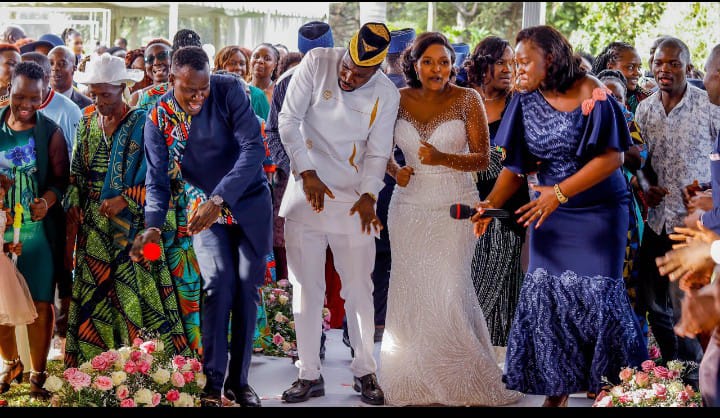
In the land of western kenya, weddings are more than just a ceremony. They are a celebration of love, family and culture. As a proud member of luhya community, I have grown up watching these colorful and joyful events full of traditions and customs.
When a young man from our community wants to marry, the first step is to express his interest to the girls family. This is usually done quietly, sometimes through an elder or an aunt, to show respect if the girl agrees, the real process begins – one that brings both families together in unity.
The most important stage is ‘ Khuchanjia’ which is the traditional bride price negotiation. This is not about cows or money, it is about bulding a relationship between two families. The groom’s family visits brides home with elders, gifts and respect. They sit together eat, laugh and discuss the dowry. Every item from sugar, salt, cooking oil to chickens and goats has a meaning. It shows appreciation of how the bride was raised.
If the dowry is partly or fully paid, the qedding day is planned. This day is often filled with excitement across the whole village. Everyone gets involved. Women start cooking as early as 4.00 a.m preparing large pots of chapatis, rice, beef stew, chicken and traditional vegetables like mrenda. In luhya weddings, food is never in short supply.
The bride is usually dressed in a beautiful white gown but before she arrives at the church or garden venue, there is sometimes a playful ‘hide and seek’ where the groom’s people must find the bride. These small games add fun and joy to the day.
In church or at the venue, there is singing, drumming and dancing especially the famous Isukuti dance which brings everyone to their feet. Luhyas believe that no wedding is complete without music and dance. The Isukuti drum beat with energy and both old and young shake their shoulders in pride and celebration.
After the vows are exchanged, more celebrations follow back at home. Here speeches are made, blessings are given by elders and the newlyweds are showered with gifts and wisdom. Laughter fills the air as people eat, drink and dance late into the evening.
But even after the ceremony, the marriage journey continues. Elders from both sides continue guiding the young couple. In our culture, marriage is not just about tqo people, it’s about families coming together
Weddings in Luhya community are not just events, they are moments that remind us of who we are. They teach us to respect our roots, honour our parents and celebrate love in it’s purest form.
Wether you are a guest, a relative or the bride or groom, one thing is for sure, you will leave with a full stomach, a happy heart and dancing feet.